NATO has issued a stark warning to Moscow after Russian drones crossed into Polish airspace on 10 September, triggering air defences and emergency consultations in Brussels.
Secretary General Mark Rutte said it was “the largest concentration of violations of NATO airspace that we have seen” and called the incidents “dangerous and unacceptable.” Poland immediately invoked Article 4 of the NATO treaty, bringing allies together to discuss the threat.
Rutte said the Alliance would not let such incursions go unanswered. “Russia violated NATO airspace. Therefore, we must – as NATO – make clear our resolve and our ability to defend our territory,” he told reporters. The launch of a new mission, Eastern Sentry, was unveiled as the response.
Eastern Sentry will begin in the coming days, with forces from the UK, France, Germany, Denmark and others moving to reinforce NATO’s eastern flank. The operation will feature integrated air and ground defences and, for the first time, dedicated counter-drone capabilities aimed at tackling the exact threat that prompted the alert.
General Alexus Grynkewich, NATO’s Supreme Allied Commander Europe, said the Alliance’s actions were already having an effect. “Although the immediacy of our focus is on Poland, this situation transcends the borders of one nation. What affects one Ally affects us all,” he said.
Allied leaders are framing Eastern Sentry as both deterrence and reassurance. The scale of the deployments, and their rapid timing, are intended to signal to Moscow that allies will act in lockstep. Rutte underlined this point, saying NATO would “defend every inch of Allied territory.”
For months, Russia has been testing the edges of NATO airspace in Romania, Estonia, Latvia and Lithuania. The latest incursion into Poland has convinced allies that this is now a pattern rather than a string of accidents. Eastern Sentry is designed to show that NATO is ready to adapt, and that allied territory is not open to repeated probing without consequence.


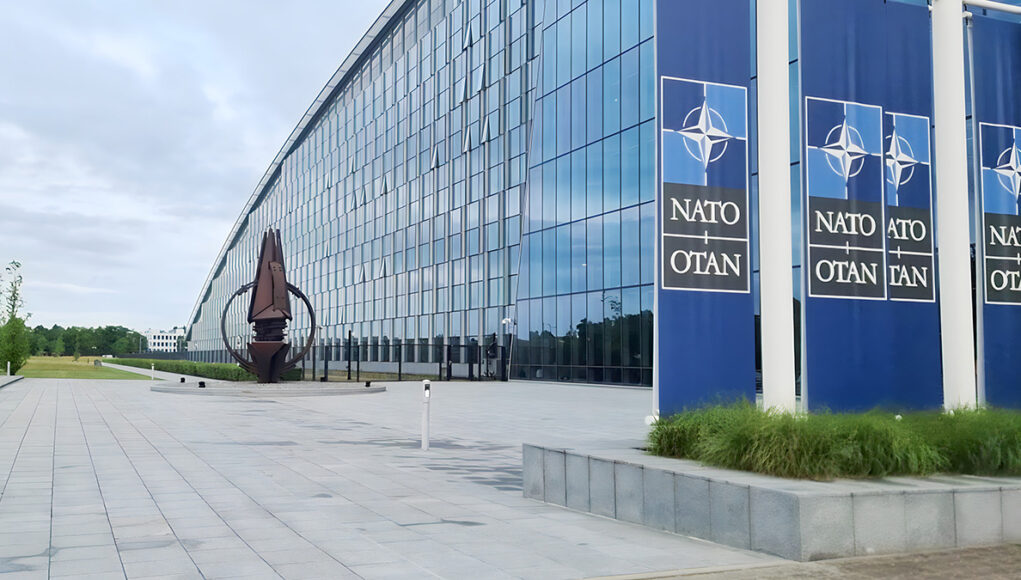
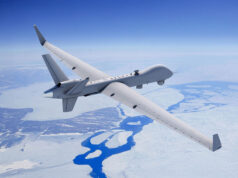

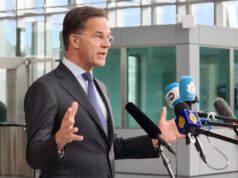

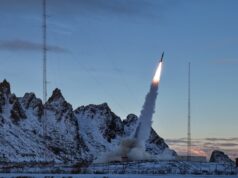
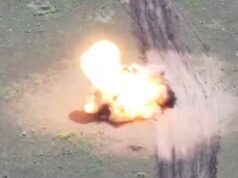

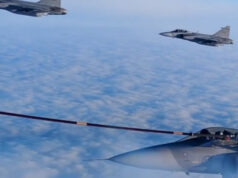
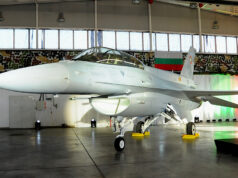
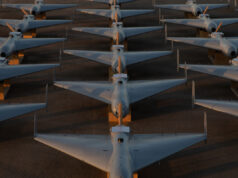

It’s nice that mark Rutte used some words and issued a statement
I am sure Russia will be very sorry for what they did and will not do it again.
It obviously causes Putin great pain for us to send more defences to Poland.
I’m sure such a weak assed response from NATO will not invite further provocations from Russia.
What do you expect. A full retaliatory strike?
Not yet, however real economic sanctions would be appropriate. Expropriation of $300+Bn in RU central bank assets frozen in EU, severing relationship of all RU banks from the SWIFT system, secondary sanctions on any/all who import any RU commodities. Mad Vlad may not be dissuaded from action, but would certainly be annoyed. Massive increase in shipment of of armaments to UKR. Eventually, Vlad may take the hint.
Swift has already been done.
Frozen assets we have already discussed and im in favour. Ask yourself why Euroclear and the Belgian government are against it, maybe do some research.
The secondary sanctions has been talked about for some time, I would like to see the west do this. Again, ask why it has not been done, if reports are true your orange fool asked the EU to impose them and they said no, why? Why has your orange president delayed imposing them?
The mistake the west keeps making is thinking the world needs you.
Your ‘not yet’ reply to Laurence, I’ll ask you a question, after 3.5 years, why do you think the eu and usa have avoided direct attacks against us?
Ulya,
Some, but not all RU banks have previously ben disconnected from SWIFT system (Mar 22 and Jun 22). Now would be an opportune time to exclude the remaining RU banks/financial institutions.
There are at least three ENATO countries w/ governments which are reluctant to reduce purchases of RU petrochemicals: Hungary, Slovakia and Turkiye. The Donald is occasionally correct, ENATO must have a united policy to be effective in diplomacy/economics/military affairs. Mad Vlad is a dictitorial leader of one member of the CRINK alliance, it is an odds-on proposition that at least one member of the alliance will climb the escalatory ladder in the foreseeable future, precipitating a conflagration which extinguishes civilization, and possibly all life, in the Northern Hemisphere (NH) and, quite possibly, most of the SH. Probably an intelligent course to delay that eventuality for as long as it remains reasonable.
Interesting reply, thank you
Re Your question to Laurence:
Under Biden it was the fact that your agent Trump has undermined American resolve to fight first with his cowardly withdrawal from Afghanistan, then with his hysterical slander campaign against the Democrats as warmongers for standing up to your fascist evil.
Under Trump it is him following orders to effectively destroy good on earth starting with democracy in Europe via appeasing Putin.
NATO united could just tell Russia to withdraw from Belarus and Ukraine or we will make you and if we have to make you you lose Kaliningrad as well.
EuroNATO on its own would need a few years to prepare to do this but agreed spending plans should have us ready to do that without the USA by 2035. We just have to keep Ukraine fighting until then.
No, but there are dozens of other punishments nato can make like moves against the shadow fleet.
Using harmfull Polystyrene to make these Drones ( actually lets just call them RC type Wreck reation vehicles) and send them to Poland is a gross violation of Gretta’s principles.
I say let us retaliate using the full force of the little darling.
Unleash the Thunberg.
Can we air drop her using a stealth F35 on Moscow?
Only when the wind is blowing in the right direction.
Yet we still have Trump saying”it could have been a mistake”🤬and now he wants to lift some sanctions on Belarus to allow them to supply aircraft parts to Russia! He also claims that if certain NATO countries stop buying Russian oil he will implement crushing sanctions on Russia,here’s a tip impose those sanctions and they will no oil to sell!
I agree. If UKR falls then we are all in danger. The actions you suggest would put such massive pressure on Putin that his own cohorts and lackeys might turn on him. The continuing war against UKR is a situation that Putin cannot win as long as ENATO supports Ukraine.
NATO made a big mistake when Russia attacked Ukraine,a country that did not do any harm to Russia and in which case as soon as Russia committed this atrocity NATO should have sent troops near the border to teach Putin a lesson in defiance.A bully, murderer, psychopath like Putin would have stopped going further.
It would have been a show of strength, support and solidarity for NATO. Thousands of lives would have been saved.
I do wonder why Putin keeps pushing is Luck there’s no way he can beat NATO in a Battlefield situation and of course if it went to Nukes no body wins .IF eventually he takes the Ukraine I’m sure Soviet troops would still be getting blown away on street coroners by an Ukrainian under ground.
Maybe we need to be hitting the general population a bit harder. Cancel all holiday visas in Europe (there’s much to much grey warfare going on anyway) ban Russia from all European football and sports events in Europe whilst they occupy Ukrainian land permanently. The majority of Russia lies in Asia anyway, let them compete there.
Said it elsewhere, give the Ukrainians the ability to knock out the drone production facilities. Open Source intelligence has pinpointed. Targeting rail hubs, infrastructure and the rest is possible, they have proved that time and time again. You cannot fight a war, even a proxy war with one hand tied behind your back.
I did read the Ukrainian “press gangs” are now kidnapping men up to 65. Desperate measures call for desperate responses. Or this goes tits up and directly involves Nato. No one wants this war except Putin, Xi and the MIC.
NECESSITY for an immediate NO-FLY-ZONE over UKRAINE
Irrespective of the joint press conference at NATO Headquarters, in Brussels, on Friday 12SEP2024, the necessity to implement the following suggestion is,
1. a direct consequence of Putin’s decision to violate NATO’s air-space, and
2. the very minimum now required to re-establish and confirm the effective DETERRENCE of NATO’s Allied Air Command (AIRCOM).
Consolidated within NATO’s Allied Air Command (AIRCOM), is sufficient hardware and all the competent personnel, to give politicians the confidence to impose a unilateral no-fly-zone over Ukraine . . . possibly without (the necessity for) a “shot-being-fired”.
NATO can re-assure Putin that NATO has no wish to, and no intention of, disrespecting or transgressing 1991 internationally recognised borders . . .
3. provided NATO’s assets are not attacked whilst they conduct air-patrols along those 1991 internationally recognised borders, and
4. provided no flights – of any kind – are detected heading towards Ukraine or NATO member states.
NATO’s Allied Air Command (AIRCOM), should give politicians the confidence to now put the onus of responsibility on Putin, and remind him of the “shock-and-awe” that NATO can and would employ to remove launch-sites, destroy manufacturing facilities, and eliminate logistic nodes, associated with any flights – of any kind – directed towards Ukraine or NATO member states.
The above suggestion is deliberately, singularly, focused on the air-war over Ukraine.
If not a specific agreement, it is suggested the consequences of the above on the ground-war should be sufficient to produce a tacit recognition and acknowledgment of, and the long-term “freezing” of, the present, de facto, front lines of the ground-war.